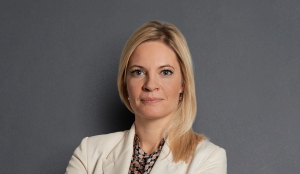Tech & Comms 2020 Predictions
For a third consecutive year (click here for our 2019 and 2018 reports) we have asked our technology & communications specialists from around the world to identify the challenges and opportunities they expect the sector to face in 2020.

Canvassing views from lawyers from a range of practice areas including Intellectual Property, Data Protection, Regulatory & Public Affairs, Tech Transactions and Banking & Finance, we have covered a range of developments involving AI, Open Source, 5G, Cybersecurity and New Mobility. While the next steps regarding Brexit as well as other 2020 priorities of the European Commission also feature.
Experts from our offices in Australia, Belgium, Denmark, Finland, France, Germany, Hong Kong, the Netherlands, Poland, Spain, Sweden, the UAE and the UK have contributed to this article but the trends and developments identified will often have a global impact.
Artificial Intelligence: Adoption & Regulation
Artificial Intelligence: Intellectual Property
Blockchain and Digital Ledger Technology
Blockchain and Smart Cities
Body of European Telecoms Regulators Work Programme
Brexit
Cloud: Next generation of cloud strategies
Competition in Digital Markets
Cyber Security
Data Driven Societies
Digital Platforms Inquiry - Australian Government Responds
Digital Services
Digital Single Market
Electric Vehicles - European vehicle CO2 emissions performance standards
ePrivacy Regulation
European Electronic Communications Code
Fibre Network Rollout
FinTech - Digital Transformation
5G Auctions
5G in the Middle East
Free and Open Source Software
LEOs – dream or reality?
National Broadband Networks
New Mobility
Online Harms
Open Data
Open Tech in the Financial Services Sector
OTT Regulation
Payments
Predictive justice
Regulating Online Advertising
Review of the Broadband Cost Reduction Directive
Artificial Intelligence: Adoption & Regulation
Artificial intelligence is becoming almost ubiquitous. This will continue throughout 2020 and beyond. The prevalence of AI and the inevitable concerns and issues that arise from the increased mainstream use of AI will drive the question of if more regulation of AI is needed. For many in the tech community, increased regulation is to be resisted at all costs. This is understandable as we are already seeing "knee-jerk" regulatory responses to inappropriate and possibly unwise usage of facial recognition technologies. However, the regulation of AI does not need be a fundamental barrier to AI adoption. What is needed is the appropriate regulation of the technology, which creates realistic checks and balances to the adoption of AI. To a certain extent the UK is at the forefront of debate in this area – let's contribute and engage in the debate to develop a legal framework for AI that is fit for purpose.
Roger Bickerstaff, London.
The President of the EU Commission, Ursula von der Leyen, has announced AI regulation in the first 100 days of the new Commission's term. While this is unlikely to happen, it will launch a wider debate on how to regulate AI, in particular how to preserve fundamental rights.
Tobias Bräutigam, Helsinki
Artificial Intelligence: Intellectual Property
When AI writes an article, paints a picture or creates some music, who owns the resulting copyright in the work? When AI develops a new idea which might be patentable who owns the invention? Artistic endeavour and technical invention are treated as necessary human requirements in most current copyright and patent systems. Is it fair that AI-generated works should consequently fall into the public domain? WIPO has held a series of consultations this year in London and Geneva on these and other IP issues raised by AI which were attended and reported on by Bird & Bird.Further Reading: IP & AI The Debate Continues.
Katharine Stephens, London
Access to the data needed to train AI systems is becoming increasingly competitive, and in many cases it can be unclear whether third parties have IP or other rights in a dataset, and what the consequences will be of using this data without permission. As competition around access to data heats up, disputes and litigation are likely to follow swiftly behind. Getting ahead of the curve and weighing up the legal risk in training data before commercialising an AI system is likely to pay dividends in the long run.Further Reading: Forbidden Fruits: third party rights in AI training data, a European perspective
Toby Bond, London
Blockchain and Digital Ledger Technology
There has been a considerable amount of buzz surrounding blockchains in the nine years since Laszlo Hanyecz conducted the first documented physical Bitcoin transaction. However, as of 2019, blockchain technologies have slid into the "Trough of Disillusionment" in Gartner's Hype Cycle. This drop in enthusiasm is not surprising: the technologies were never going to live up to the media hype. However, as we look towards 2020, it is not all doom and gloom. Following the completion of R&D programmes and pilots -some unsuccessful- organisations have begun to understand the specific benefits of particular blockchain platforms and the use cases they can be appropriately deployed towards. For businesses, the future of blockchain appears to be private or permission blockchain networks focused on practical use cases around better data transparency, exchange and identity management. This includes using blockchains for tracking and tracing goods, for identity management (e.g. better exchanging of KYC/AML documentation) and to solve document heavy transactions involving disparate parties sharing information in different ways (e.g. trade finance). Watch out 2020!
Further Reading: Blockchains Uncut: Risks, Rewards and Regulations
Jonathan Emmanuel, London
More new use cases for Digital Ledger Technology (DLT) are emerging. Blockchain is about decentralised decision making and distributed data. As almost all enterprise of government use cases for blockchain have to make compromise on the "non-control" part of the "trustless tech" part of Blockchain to regain some "traditional" centralised governance, the distributed data have become the conditio sine qua non. Large networks with many different actors do not trust any party to hold the data base. DLT provides trust in that no one will monopolise the data -let's call it VOD (validated open data). Obvious DLT business cases are in the new economies and marketplaces of IoT and 5G.
Martin von Haller, Copenhagen
Blockchain and Smart Cities
In the context of "smart societies" or "smart cities", there is a case for DLT over e.g. Blockchain, driven not only by concerns over privacy or lack of centralised governance (in fact there is a case for need of centralised governance if using blockchain in an open, internet-based smart city), but also by the fact that a "traditional" one ledger open and public blockchain is often not suitable for open networks, or any form of network that requires cooperation between entities from different domains, or aim to be globally scalable. Technologies addressing some of the inherent shortcomings or limitations of blockchain technology in the "smart city" context (expiry date, limitations on scalability, ever increasing hardware requirements, blockchains being unfit as a cooperative data-layer in a heterogeneous environment, dependency on large data centres such as cloud providers for longevity, energy consumption, governance to ensure homogenous infrastructure, privacy, etc) are emerging and have become a hot topic with technology providers, innovators and investors. However, this also creates an obvious dilemma- how to make a blockchain "governable" without compromising the decentralisation and no-control properties that are, and will, always be core to blockchain and DLT, if this is to have any meaning vis a vis traditional databases. We are starting to see signs of the technology that could square this circle, and we expect this opportunity and dilemma to be a key area for technical, as well as legal innovation, in the coming years.
Han Svensson, Stockholm
Body of European Telecoms Regulators Work Programme
In its work programme for 2020, the Body of European Telecoms Regulators is likely to focus on 5 priorities:
- responding to connectivity challenges and to new conditions for access to high-capacity networks;
- monitoring potential bottlenecks in the distribution of digital services;
- enabling 5G and promoting innovation in network technologies;
- fostering the consistent application of the open internet principles; and
- exploring new ways to boost consumer empowerment. An array of draft guidelines in view of the implementation of the EECC will be open to public consultation throughout the year.
Further Reading: Draft BEREC 2020 Work Programme
Feyo Sickinghe, The Hague
Brexit
After the Conservative party success at the UK General Election on 12 December, the very strong likelihood is that in formal terms the UK will leave the EU on 31 January 2020. Due to the Transition Period included as part of the Brexit Withdrawal Agreement between the UK and the EU, nothing will change in practice until the end of Transition Period - currently scheduled to end in 31 December 2020. All of the current rules will stay in place during this period, such as free movement of goods, services and people, the existing customs union arrangements and the existing rules relating to data transfers and IP rights. The Johnson government has committed to put in place a free trade deal which will come into force at the end of the Transition Period. Almost all commentators regard this timetable as being unachievable for anything but the most basic form of free trade agreement. The UK has an opportunity to extend the Transition Period for one or two years but the request for the extension must be made prior to 30 June 2020. It remains to be seen whether there is political pressure in the UK government to request such an extension. If a free trade agreement is not in place at the end of the Transition Period the UK would move to WTO terms for the conduct of its international trade. These may involve the payment of substantial duties and tariffs on import and export trade in specific circumstances.
Roger Bickerstaff, London.
Cloud: Next generation of cloud strategies
Many people are still using the cloud, but we are seeing a next generation of customers, which are more diverse in their cloud demands. Customers' cloud strategies still revolve around price and security, but also openness, fit for purpose services and sustainability.
Instead of one central cloud, customers are working with multi-cloud, multi-vendor set-ups, with strategies around open cloud applications to avoid vendor (and data) lock-in, and allow for a hybrid cloud infrastructure, where the customer can shop around for the best cloud products.
In relation to the services, we are seeing a discussion around new tech and taking the cloud from a central economics of scale approach closer to the application via Edge or Fog technology to reduce latency for time sensitive services like IoT, 5G, EV, HealthTech, drones etc.
Emissions from datacentres are now at a scale comparable to the travel industry, and another key customer demand in cloud is green cloud. We are now seeing sustainability as one of the key demands from customers in relation to their cloud services.
Julie Bak Larsen, Copenhagen
In 2020, we will finally see that the majority of Polish businesses will move into the cloud, or at least start the transition. This trend will be strengthened by the Polish government which has decided to implement cloud technologies. Public tenders for cloud services will help grow suppliers' businesses, and develop the terms and conditions for such services.
Tomasz Zalewski, Warsaw
Competition in Digital Markets
Throughout 2019, there has been a spotlight on competition in digital markets with numerous global interventions and inquiries. This trend is expected to continue into 2020. In the US, the Department of Justice is reviewing online platforms. In the EU, the European Commission has also just announced a review of the Market Definition Notice, and we can expect new guidance on vertical and horizontal agreements to ensure the competition rulebook remains up to date.Further Reading: Justice Department Reviewing the Practices of Market-Leading Online Platforms
Anthony Rosen, London
Cyber Security
2020 will see:-
- further significant cyber-security breaches occurring globally and no let-up in the rate of lesser breaches;
- the continued blurring of state actor and guns for hire activities and a further greying of the border between war, terrorism, crime and hacktivism;
- increasingly granular, regulation and regulatory guidance;
- the imposition of regulatory fines (with the quantum no doubt set "pour encourager les autres") and the rise of derivative claims and compensation litigation;
- attempts to achieve some degree of balance to address the overlaps in the current regulatory environment;
- a significant rise in cost of cyber insurance;
- the escalation of the cyberwar with AI in use on both sides of the divide.
Simon Shooter, London
The importance of cybersecurity cannot be overestimated. The notion of "cyberwars" or "cyberterrorism" has become a reality and no longer only belongs to the world of sci-fi. In the era of connected devices, where our lives depend on technologies more than ever before, keeping networks, services and their users safe from cyber threats is a real challenge and cannot be neglected. As a result of increasing regulation in this area, increased global cybersecurity risk should be among the top priorities of every organisation, not only those designated as operators of essential services or providing digital services.
Piotr Dynowski, Warsaw
Data Driven Societies
In 2020 the pace of technological progress will speed up and within all sectors digital will become mainstream. We can predict that we will assist in the increasing democratisation of artificial intelligence and machine learning driven solutions. That blockchain will leave its territory of experimental and small-scope projects and finally privacy and building trust and transparency will be a main topic throughout 2020. In a data driven society we should see increasing interest and pressures in building digital trust and self-sovereign identity solutions.
Alexander Benanal, Madrid
As the name indicates, big data needs vast amounts of data to function. The same is true for training data used for AI. In Europe, it has been harder to access huge data sets due to (perceived) data protection impediments. In the coming years, we are going to see more cooperation and consortia between companies to connect separate data lakes.
Tobias Bräutigam, Helsinki
Digital Platforms Inquiry - Australian Government Responds
The Digital Platforms Inquiry was undertaken by the Australian Competition and Consumer Commission (ACCC) in order to consider the impact of digital platforms (such as Google and Facebook) on competition in the media and advertising services markets.
By committing to implement most of the ACCC's key structural recommendations, the Australian Government has affirmed the importance of the role that competition, privacy and content laws will play in shaping the regulatory settings for digital platforms.
The key initiatives that the Government has committed to are:
- Establishing a new Digital Platforms Branch
- Developing a new industry code
- Reviewing Australia's merger laws; media regulation, and privacy laws
- Addressing disinformation
A more in-depth article can be accessed here.
Sophie Dawson and Thomas Jones, Sydney
Digital Services
While the European Commission has said that it does not want to re-open the longstanding liability exemptions in e-Commerce Directive which protect hosting service providers, the forthcoming Digital Services Act is likely to recalibrate the responsibilities of platforms in relation to illegal content. We can expect moves to introduce a set of minimum standards for the transparency and accountability of digital services and obligations to fight against illegal content online, as well as measures promoting cross-border cooperation by competent authorities. The Act may also include an EU-wide concept of hate speech, since diverse national approaches makes it difficult for platforms operating worldwide.Further Reading: The EU Code of conduct on countering illegal hate speech online
Francine Cunningham, Brussels
The European Commission will issue a proposal for a Digital Services Act containing a review of the e-Commerce Directive. According to the Commission, online services should bear a set of clear responsibilities and obligations to fight against illegal content online and to protect freedom of expression online. Secondly, competent authorities should have better cooperation across jurisdictions and in enforcing the law.
Feyo Sickinghe, The Hague
Each year we see that technology is becoming increasingly regulated. Following on from data protection and cybersecurity, and on the eve of the introduction of the Digital Services Directive, key areas, such as blockchain, autonomous vehicles and AI, are the next topics regulators will focus on. It will be more and more challenging for organisations to meet the growing number of compliance requirements while at the same time maintain flexibility and be able to offer innovative products and services. Also, competition law will play an increasingly important role in the Tech sector as regulatory compliance can be used as a valuable tool for organisations to build their competitive advantage.
Piotr Dynowski, Warsaw
Digital Single Market
Liability of Internet service providers has been under the spotlight of the European Commission, European Parliament and Court of Justice for several years now. With the deadline for implementing the Digital Single Market Directive slowly approaching, for the first time the Polish Supreme Court will issue a decision on peer-to-peer network liability for copyright infringements committed by its users. The decision will most likely shape the wording of the implementing act and its interpretation by Polish courts.
Paweł Lipski and Daria Gęsicka, Warsaw
Electric Vehicles - European vehicle CO2 emissions performance standards
The new European vehicle CO2 emissions performance standards will provide opportunities for electric vehicle manufacturers to enter into pooling arrangements with other vehicle manufacturers and be able to sell CO2 emissions credits to the pool. For example, Fiat Chrysler Automobiles (“FCA”) has recently agreed to pay Tesla hundreds of millions of Euros so that Tesla’s vehicles are counted in FCA’s fleet as part of a pooling arrangement. This will enable FCA to avoid paying large penalties to the European Commission under the new EU vehicle CO2 emissions rules. Read more here.
Lawrence Freeman, Brussels
ePrivacy Regulation
The original plan presented in 2017 was to have the ePrivacy Directive replaced by a newly drafted ePrivacy regulation that will “reinforce trust and security in the digital single market”. However, the proposal did not obtain the required support and was no longer pursued. As a result the new rules of the GDPR in combination with the lack of updated ePrivacy rules has given supervisory authorities the opportunity to promote their own interpretation on high profile topics such as cookies and spam. In December 2019 the newly appointed Commissioner Breton has announced that the European Commission plans to present a reworked version of the ePrivacy Regulation under the Croatian Presidency i.e. in the first half of 2020. These dynamic supervisory, regulatory and legislative developments make this a top-priority for any telecommunication and IT/internet companies.
Berend van der Eijk, The Hague
With progress on the new ePrivacy Regulation stalled, the focus will be on the new draft that is expected to be prepared by the EU Commission and whether this will be a marked departure from the original 2017 proposal in an effort to get through the deadlock in the Council. In the absence of new legislation, the focus will remain on compliance with the current ePrivacy Directive and the impact that the GDPR's ever-evolving guidance has on the current regime. OTT communications providers will also find themselves covered by the Directive from the end of 2020 as they become regulated by the EECC.
Matt Buckwell, London
European Electronic Communications Code
On 17 December 2018, the European Electronic Communications Code was published (the "EECC"). The EECC must be implemented in the national legislation of the European Member States by 21 December 2020. The EECC has added an important new objective being the promotion of connectivity, access and use of very high capacity networks including fixed, mobile and wireless networks for all citizens and businesses of the Union. Amendments relating to the access regime include the new provision in relation to significant market power analyses and symmetrical access, Radio Spectrum/5G, the Universal Service and further enhanced end user protection. The transposition of the EECC in national legislation will be an important area for all EU Member States.Further Reading: EECC Implementation Tracker
Marjolein Geus and Marianne Minnecré, The Hague
Fibre Network Rollout
Fibre networks play an important role in the European Commission's goal of ensuring broad gigabit access connectivity by 2025. However, the scale of fibre network roll out varies greatly across Europe and we will observe an uptake in fibre investments from:- new entrants, seizing the opportunity to win customers from incumbent operators;
- incumbent telecom operators themselves, who feel that they might lose the race against these new players and against cable operators that can also provide speeds up to 1 Gbit;
- investing companies, who increasingly deem fibre investments to be a long term safe investment with steady returns.
Paul Waszink, The Hague
FinTech - Digital Transformation
The financial sector is at the forefront of change driven by new technologies. Continuing regulatory changes (PSD2, AML, EBA Guidelines, NISD, and GDPR) are creating opportunities for new players (FinTechs) and forcing traditional players (banks, insurance companies) to apply new solutions and invest in new technologies (ie., AI, blockchain, cloud, etc.). The Polish financial sector, despite strict regulatory supervision by the KNF and some local golden plate requirements, is no different – we expect many new technology driven projects (both commercial implementations and R&D projects) to be deployed in 2020.
Kuba Ruiz, Warsaw
5G Auctions
The Dutch Government has announced that the first 5G auction (700, 1400, and 2100Mhz bands) will take place mid 2020 in a multi-round auction.
The proposed reserved price is set at €900 million and participating companies will have access to a maximum 40% of the total available frequencies. The consultation started on 5 December 2019 and will run for six weeks with the auction set to begin before 30 June 2020. An auction of the 3.5GHz band, which is currently being used for satellite communications by the Dutch State will follow in early 2022.
Further Reading: Netherlands to raise at least 900 million euros in first 5G auction
Marjolein Geus, The Hague
5G in the Middle East
5G is a core focus for many Middle Eastern countries, particularly those with ambitious digital policies. Implementation of 5G is an important part of a number of government visions for their country's development, such as Saudi Arabia's "Vision 2030" and the United Arab Emirates' "Vision 2021". In 2020 5G will continue to be rolled out in the region meaning that it will soon be widely available across a number of important markets like the United Arab Emirates, Saudi Arabia and a number of African countries.
The Middle East will be hosting a number of major international events such as Expo 2020 in Dubai and the FIFA World Cup in Qatar in 2022. We expect these events to stimulate and showcase 5G services. Similarly, we would expect Saudi Arabia’s latest new city project, Neom, to include new technologies, such as 5G right from the start.
This new era of digital connectivity will have a number of applications. One important one that we are seeing in the Middle East relates to transportation, innovation and implementation of autonomous vehicles. The United Arab Emirates' Government have set out their vision that 25% of all journeys in Dubai will be autonomous by 2030. This will require seamless IoT / IoV connectivity - the establishment of a reliable 5G network is an important step towards meeting this vision.
Chris Eklund, David Bintliff and Lena El-Malak, Dubai
Free and Open Source Software
With an increasing number of companies actively engaging in Free and Open Source Software (“FOSS”) projects, the effect such contributions have on companies’ other intellectual property rights becomes more and more important. While the copyleft effect and its scope have been discussed in the context of outbound licensing for years, the effects contributions may have especially on companies’ patent portfolios, are yet to be clarified. The interplay between FOSS, FOSS contributions, patent licensing, SEPs and FRAND licenses will become increasingly relevant, especially as we see standard setting organisations move towards creating reference implementations of standards under FOSS licenses.Further Reading: The Relationship Between Open Source Software and Standard Setting
Miriam Ballhausen, Hamburg
Open source software is everywhere today. Microsoft is a top three contributor to the Linux Kernel and all new and innovative technologies such as AI, Blockchain, IoT and Edge computing are based on software licensed on source terms. However, cloud computing has made things more complicated as all cloud providers use open source software. However certain smaller open source developers have become frustrated that the large cloud providers are allegedly extracting most of the value from these developers' software at their expense. Whether these unfair exchanges actually take place is a topic heavily discussed in the open source community. Certain developers have responded with an introduction of a new type of license – the "source available license" – this prohibits commercial use of the software but otherwise mimics an open source license. We can expect a lot of discussion in the coming years as to whether this should still be considered open source or not.
Martin von Haller, Copenhagen
Increasingly Chinese companies are adopting open source as they look to develop secure, scalable and interoperable software and firmware protocols which can be exported globally, while navigating trade and geopolitical tensions.
The rate of digitisation and the scale of technological investment in China are much faster than in Europe and the US. For Chinese companies looking to globalise, open source software provides an opportunity for cross-border collaboration, while developing trust and credibility through openness.
We are already seeing an increasing demand from Chinese businesses for legal and strategic advice in relation to Open Source and expect this to continue in 2020 with further advancements in 5G, Multi-access edge computing and infrastructure-embedded DLT.
Ted Chwu, Hong Kong
LEOs – dream or reality?
2019 saw both OneWeb and Space X launch their first Low Earth Orbit satellites and OneWeb controversially claim 'priority' for its ITU spectrum filings. As each of the Constellation's dream flies closer to reality substantial challenges remain including the cost of launching the hundreds of additional satellites and establishing terrestrial networks. If they can be overcome there is no doubt that a raft of opportunities and applications challenging traditional fixed or cellular networks will emerge. In addition to innovations in better managing the risk of debris and collisions in space as thousands of these birds start whirring around the globe.
Thomas Jones, Sydney
National Broadband Networks
Despite increasing competition from 5G and the challenge of mobile-only households, Europe is following Australia's lead and building National Broadband Networks. The success of the Conservative party on December 12 2019 means the UK is destined for more fibre sooner. In The Netherlands, governments and regulators are grappling with the natural monopoly characteristics of NBNs and implementing restrictions on overbuild. Why? Perhaps because there are still some things that fibre does best – 4K streaming, gaming and big file transfers among them. However, NBNs are being seen as great for businesses, big and small.
Thomas Jones, Sydney
New Mobility
New Mobility is a growing business capitalising on trends such as autonomous driving, connectivity, smart infrastructure, and e-mobility. The phenomena around new mobility is about to change our way of moving, sharing and use of traffic infrastructure for good. Whilst the spectrum of businesses in new mobility is growing rapidly, the pace of change indicates that it's now more important than ever for sector players to stay ahead of the game. In terms of investments, the European Commission has reserved a total budget of €1.4 billion to support sustainable transport projects, as tackling climate change becomes a top priority in EU institutions across a range of policies.
Maria Carlsson, Helsinki
Data acquisition and sharing are at the heart of new mobility policies aimed particularly at promoting the shared use of individual modes of transport and facilitating multimodal travel.
In order to combine these heterogeneous elements and give impetus to Mobility as a Service (MaaS) initiatives, the draft Mobility Orientation Act (LOM) allows for the establishment of digital platforms (multimodal digital service providers). This brings together various mobility offers within a geographical area providing a one-stop-shop on which it will be possible to calculate one's itinerary, book a self-service bicycle followed by a VTC or a car-sharing space.
The MaaS platform will receive a significant amount of data on users and their movements as well as the commercial offers and service characteristics of mobility operators. The question of the management and exploitation of the valuation of these data is at the forefront of the issues raised by the MaaS models. The risks associated with the use of data in the context of new mobility are critical given the sensitive nature of the information that can be collected voluntarily or involuntarily, this includes geolocation, travel preferences, infringement data, etc.
More than ever, the issue of the security of this data remains predominant as it must comply with the technical, organisational and logical requirements of the legal framework (DGPS, NIS Directive, etc.) as well as the related standards, particularly those issued by ANSSI.
Merav Griguer and Stéphane Leriche, Paris
Online Harms
Ursula von de Leyen has set out the agenda and focus for the new Commission. Digital affairs are a high priority and the regulation of online harms and internet liability with a new Digital Services Act and review of the eCommerce regime. In the UK, we can also expect regulation following on from the Government's UK Online harms Whitepaper.Further Reading: Ursula von der Leyen – "A Union that Strives for more – My agenda for Europe"
Anthony Rosen, London
Open Data
On 16th July 2019, the revised Open Data Directive entered into force. The PSI Directive focuses on the economic aspects of the re-use of information and will allow wider access to 'high value data sets". While Member States will have to implement the Directive by July 2021, it is foreseeable that the use of public data will be a hot topic of discussions for years to come.
Tobias Bräutigam, Helsinki
Open Tech in the Financial Services Sector
Open Banking and access to financial data has been a main focus during the last couple of years. The European banks' have now joined forces in a digital strategy group under the European Banking Federation in the battle against the tech giants such as Apple, Facebook, Google, Amazon, Alibaba and We Chat. The aim is for regulation similar to PSD2 to be introduced in the tech sector and the digital strategy group will raise this with the EU Commission in 2020. Due to this we can expect the next data battle to be the battle of Open Tech.
Annette Printz Nielsen, Copenhagen
OTT Regulation
OTT Regulation 2020 will represent the key phase in the development of OTT telecoms regulation as Member States implement the European Electronic Communications Code. It will be important to monitor implementing legislation across the EU as well as start compliance planning to be ready for implementation in December 2020. Obligations will include consumer contract and transparency requirements as well as network security and incident reporting obligations.
Anthony Rosen, London
Payments
Payments are heavily connected to, and impacted by, technology. As from December 2020, e-commerce transactions will, in principle, need to be subject to strong customer authentication (SCA), for example in the case of an iPhone user TouchID or FaceID (rather than a password or a PIN). This means that EEA-based card issuers will increasingly want to leverage the fingerprint sensor and camera on a mobile user's phone for the purposes of complying with the SCA requirements in a convenient way. However there are exceptions to the principle of SCA that card issuers and merchant acquirers are able to leverage.
Scott McInnes, Brussels
The competition law enforcement arm of the European Commission (DG COMP) announced that it is investigating Apple, in relation to the technical "lock" that Apple have placed on the NFC (Near Field Communication) antenna in the iPhone, which used to make NFC contactless mobile payments. In parallel, the German legislator has recently adopted a new law forcing Apple in particular to give access to the iPhone's NFC antenna to any payment service provider, for example, card issuers.
Scott McInnes, Brussels
Since September 2019, EEA-based account-holding institutions (e.g. banks and electronic money institutions) are required to provide an API (Automated Programing Interfaces) to Third Party Providers (TPPs) allowing those TPPs to provide new innovative services to account users, for example to provide data account aggregation services in mobile apps or financial management tools.
Gavin Punia, London
Providers of currency conversion at the point of sale (POS) or at ATMs, typically referred to as providers of DCC (Dynamic Currency Conversion) services are expected, as from April 2020, to provide more transparency to the cardholder. In particular, DCC providers will need to display to the cardholder the amount of the transaction in the currency of the merchant as well as in the currency of the cardholder, so that the cardholder can choose which currency they would like to pay.
Gavin Punia, London
Predictive justice
Predictive justice has been a hot topic for the legal sector,, and its importance is gradually increasing. The question “What are my chances of winning?” is systematically raised by clients. Predictive justice claims to provide clients with accurate baseline predictions where possible regarding the success of their disputes. This prediction may include the chances of their success, amount of compensation generally granted, procedural length etc.
AI solutions have now entered this sphere with software aimed at “predicting justice”. This will have a clear impact on the allocation of risk by our clients and our legal advice to them although the success of the algorithms used is dependent on the systems of justice operating in individual jurisdictions. For example, in the USA this legal tech is already more mainstream but an international, one size all tech solution is still some way off.
Djazia Tiourtite and Andra-Cristina Tihauan, Paris
Regulating Online Advertising
In an era of widespread political alarm over the impact of 'fake news' on democracy, the online advertising sector which has for the most part escaped specific regulation will come under increasing scrutiny. The forthcoming EU Digital Services Act will consider the possibility of regulating online advertising, particularly with respect to cross-border advertising and political advertising.
Francine Cunningham, Brussels
In the Summer of 2019, the Competition and Markets Authority, announced an online platforms and digital advertising market study. The provisional findings are due to be published paving the way for a possible in-depth market investigation into online digital advertising. The CMA report may also build upon earlier recommendations following the publication of the Digital Competition Expert Panel (Furman).
Further Reading: Unlocking digital competition, Report of the Digital Competition Expert Panel
Online platforms and digital advertising market study
Anthony Rosen, London
Review of the Broadband Cost Reduction Directive
The European Commission has informally announced the review of the BCRD, with a focus on establishing further measures to stimulate and reduce costs of network deployment and aligning the symmetrical access provisions with existing physical infrastructure and in-building physical infrastructure with the European Economic Communications Code (EECC).
Feyo Sickinghe, The Hague































